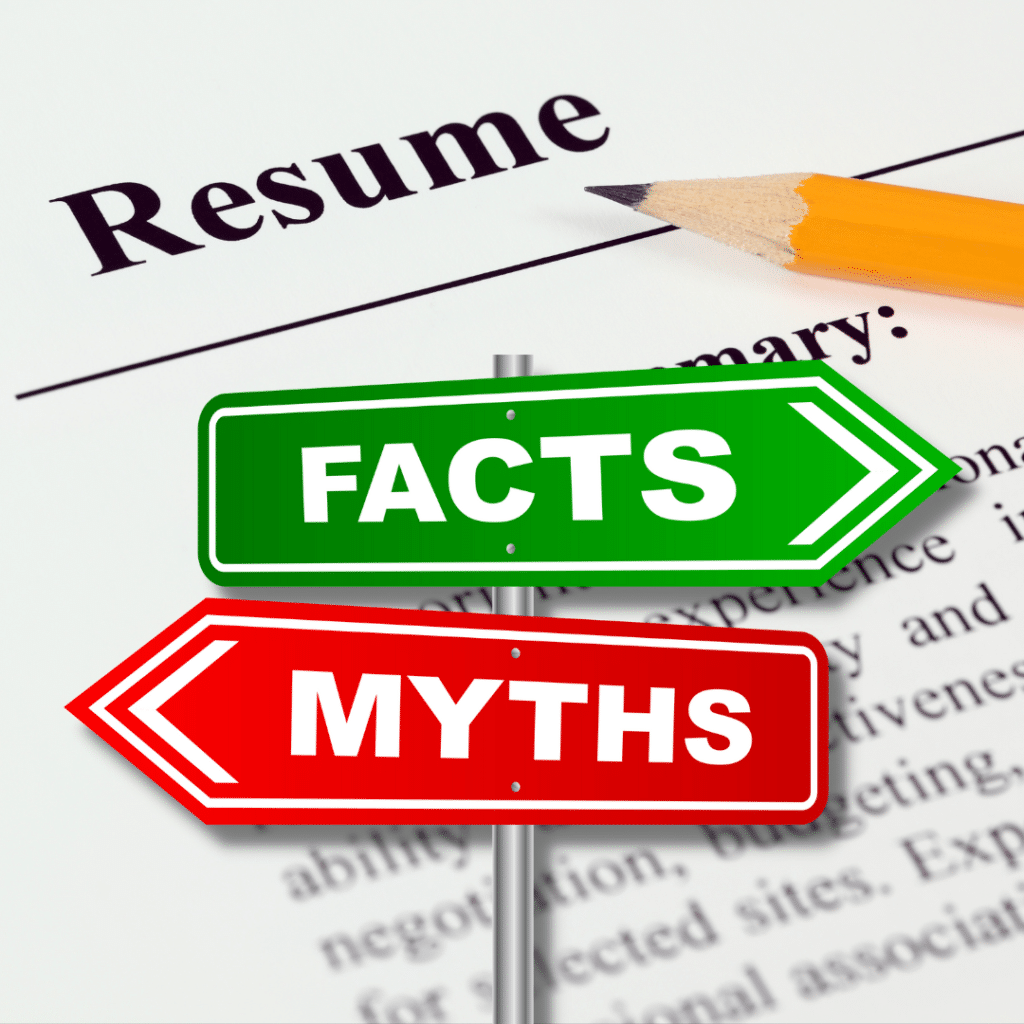True or False…
The purpose of a resume is to get a job.
- FALSE: The purpose of your resume is to get an interview. And hiring managers use the resume to determine who not to interview as well. The information you choose to include—or exclude—from your resume can make the difference on whether you will get an interview.
I need to include my entire work history on my resume.
- FALSE: These days the standard for resumes is to focus on your last 10 or so years of experience. Most employers want to know what you have done recently—not what you did in the early 2000’s, 1990’s, or even earlier.
My resume should be 1 page.
- FALSE: This is a pretty common misconception. For private sector resumes, 2 pages is entirely appropriate (assuming you have something to say). For the federal government, 4-6 pages is standard. The key thing is that the information is provided in an organized format and offers the level of detail necessary to help the reader determine whether the applicant is a good fit for the role.
Readers of my resume will understand what I do.
- FALSE: Oftentimes the first reader of your resume is from Human Resources. They are unlikely to be subject matter experts in your technical area. This means that your resume should not be overly technical, and all acronyms must be spelled out. If the first level reviewer does not understand what you have written, your resume is unlikely to be passed on to a hiring manager.
It is important to show my education at the top of my resume.
- FALSE: Unless you are within 3 or so years of graduation and seeking an entry level role or are preparing an academic curriculum vitae (CV), your education belongs at the end of your resume. In most instances, you are “selling” your experience, not your education. And in both the federal and private sector arenas, there is a renewed emphasis on competencies, rather than education.
I need to include my objective and references on my resume.
- FALSE: Using an objective and mentioning references is old fashioned. Instead create a skills summary to show the value you can bring and leave off any mention of references.
Reviewers spend time reading my entire resume.
- FALSE: Private sector studies have shown that most reviewers spent between 5 and 15 seconds looking at a resume. Federal reviewers spend more time, but the point is the same—you need to ensure that your resume immediately demonstrates your value, and all content is relevant to the job you are targeting.
There are other myths circulating about resumes too but at the end of the day, your resume is a marketing document, one that strategically presents your work experience and education as a way to showcase how you can make a contribution to your next employer.
For more resume writing and federal job related information subscribe to our newsletter on LinkedIn by clicking here and through our website by clicking here.


